The Band Didn't Know they Needed mastering and ENDED UP SELLING THEMSELVES SHORT...HERE'S HOW6/28/2023 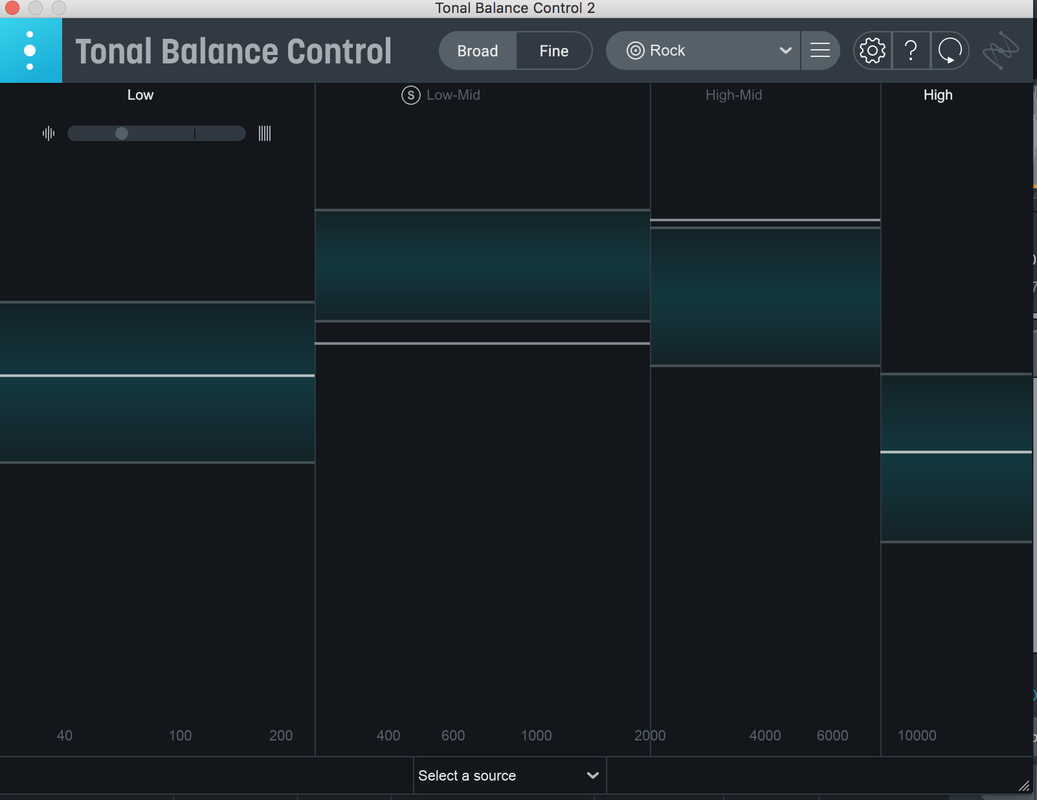 I was recently approached by a musician I was friends with in high school. His band had just recorded an album. He asked me if he could send me the tracks so I could tell him whether or not I thought the songs needed to be mastered. I told him I didn't need to hear the songs to tell him that his songs should be mastered if he wants to do a professional-style release. Every single professionally-released album is mastered. If you want your recorded music to be presented professionally, mastering is NOT an optional step. So, he agreed to let me master his album. He sent me the files that his mix engineer sent him. They weren't mastered. But, they had what is referred to as "faux mastering" applied to them. Faux mastering is essentially using a limiter plug-in to raise the volume of a mix so that you don't have to turn your device up to maximum volume to hear and evaluate your mix at a reasonable volume. If you've been a long-time reader of this blog, you know that mastering is much more than just raising the volume of a mix. It's the critically important final step in improving the sound of your recorded music. Because the volume of these files was set at maximum volume (in the industry, called "zero headroom" or "peaking at 0.0"), they were not "masterable." Why? Well, because mastering involves boosts to certain frequency ranges (e.g., giving a mix more bottom end), you need headroom, otherwise you'll get clipping (a nasty sound). It's the sonic equivalent of smacking your head against a ceiling. So, the logical option for this band was simply to ask their mix engineer to remove/bypass the limiter plug-in and reprint their files, which would have the necessary headroom for mastering. When other band members got involved in the discussion, some were apparently uncomfortable with this and said they didn't know what mastering would do for them anyway. I explained what mastering would do and how using the faux mastered files for their release could be problematic. I am guessing it was a money issue, but they said they did not want to move forward with mastering. So, they chose to be stuck with using faux mastered songs for their release. Here are four reasons this will be problematic for them and why you may not want to make the same mistake. 1. Mastering improves the tone of the entire mix. In terms of tone, mixing focuses mainly on EQ'ing individual instruments while mastering EQ's the combined work. Almost every professional, national release has a different person master their music than the person who mixed it. A second set of professional ears can identify blindspots that someone who spent hours mixing just can't hear. With a quick listen of this band's mixes, I can hear a tone improvement opportunity. I can't share the music, but the screenshot from my mastering software at the top of this blog post visually shows what my ears heard: not enough low-mid "beef" and a little too much high-mid presence, which can sound harsh at higher volumes. That's not a criticism of their mix engineer. I know him and he always does a great job. It's just something that a second pro can bring to the table when mixing and mastering are treated as the separate arts that they are. I can mix and master, but I had an outside engineer mix my latest album for that very reason...to get the benefit of a second set of professional ears working on making my music sound its best. 2. Mastering optimizes music for streaming. One of the biggest concerns in mastering today is avoiding the "loudness penalty" that streaming services impose on songs. Streaming services strive to have all songs be approximately the same volume so that you are not unexpectedly blasted by a loud song after a quiet song and so that you don't have to constantly adjust the volume on your listening device. This is of particular concern for songs that are mixed/mastered too loud for today's streaming standards. Streaming services' technology will turn loud songs down. A lot of artists today strive to avoid having streaming services apply normalization or limiting to turn down their music to match other music because it changes the character of their music. Some artists can't tell, while others - one of my clients in particular - absolutely can and want to avoid it like the plague. The files that this band sent me were printed too loud and will absolutely trigger the loudness penalty. Their songs may not sound as good on Apple Music, Spotify, etc. as they do just by playing the WAV files on their computers. Because streaming is the #1 way that music is consumed today, I consider optimizing music for streaming to be of paramount importance. 3. Mastering applies compression and limiting to make your music sound smooth. A mastered song will allow nothing to jump out and sound unnecessarily loud, even for a fraction of a second, while also maintaining dynamics. In this example, the faux mastering did nicely tame the transients and provide a smooth listening experience. I can't criticize that. I do think dynamics were sacrificed a bit compared to real mastering. The soft parts weren't really that soft compared to the loud parts. But, dynamics are subjective and more experienced ears will hear them more than less experienced ears. Today, the importance of dynamics has been elevated again after the "loudness wars" of the early 2000's. If the band felt that the dynamic range was acceptable for their purposes, it is hard to argue that more dynamic range is better - even though, to professional ears, it certainly is. 4. Mastering allows your music to sound good even when converted. When WAV files (which are called a "lossless" format) are converted to a "lossy" format, such as MP3 or the formats that streaming services use, you can get audible distortion if your WAV files do not have enough headroom. The files that this band sent me peaked at 0.0 on the meter, which means they had zero headroom. Industry standards are to leave 1 dB of headroom (i.e., peak at -1.0) for these types of conversions to avoid distortion. So, the quality of the music from these files is likely to degrade if the band wants to make them available on streaming services or even if they want to email a song to someone. That being said, their files are absolutely fine for making CD's and having their fans download as WAV files from a service like Google Drive or Dropbox. I think that the biggest lesson from this example is that you need to have a plan for mastering early on in the production process. The band didn't tell the mix engineer that they had planned to send their album out to be mastered. So, the mix engineer assumed that delivering faux mastered files would be acceptable. Know your plan for mastering before your mix begins! Look, I understand that money isn't plentiful in original music. Everyone is looking to get their music out there as cost-effectively as possible. But, I'm firmly convinced that cutting corners on mastering - after you've taken the time and spent thousands on good recording and mixing - is selling yourself short. Mastering might be anywhere from 4% to 15% of your music production budget, but it's the delicious icing on the cake. You wouldn't serve cake without icing. Why serve your fans music without mastering? Planning to have your music mastered? Contact me at 412-600-8241 or beforeandaftermusicgroup@gmail.com!
0 Comments
SONG CONTEST - ENTER FOR A CHANCE TO WIN A PRIZE PACKAGE VALUED AT UP TO $250!
Before and After Music Group, a specialist in music mastering, is inviting you to submit a song of yours in our “Master My Radio Hit” contest! The grand prize winner will win mastering services for up to five songs ($250 value). The runner up prize winner will win mastering services for one song to be mastered between November 1, 2022 and December 31, 2022 ($50 vallue). To enter, just go to http://beforeandaftermusic.wetransfer.com BEFORE OCTOBER 15, 2022 to upload one mixed, pre-mastered song in WAV format and fill out the other required information. Here are some important details:
Now, go submit your song and give yourself a shot at winning the “Master My Radio Hit” contest! 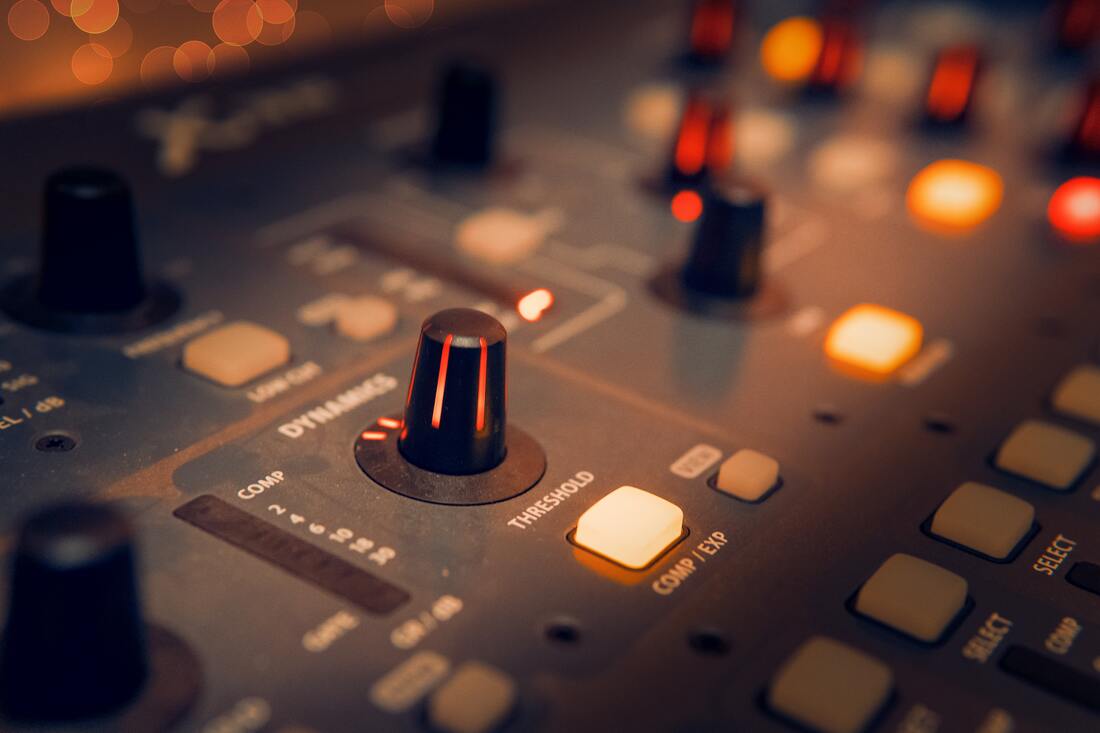 If you know me, it's no secret. I absolutely LOVE mastering. There are many steps involved in music production. So, why would I love mastering so much? Here are three reasons... 1. Most musicians have no idea what mastering can do, so I can pleasantly surprise them. Musicians have a few common misconceptions about mastering. One is that mastering simply puts files in the proper format for streaming and CD manufacture. Another is that mastering is simply the process of making music louder. While mastering does do both of those things, it does much more. Mastering makes music sound smoother like songs on the radio do. Mastering brings out more frequencies of the music and makes the overall tone better. Mastering can apply an overall effect to music - like tube excitation - that gives a song and an album a distinct character. 2. Most musicians think their mix is the best their music can sound, so I can pleasantly surprise them. Multiply the number of songs on an album by 8 to 20 hours per song spent on tracking, editing, and mixing, and most musicians will think that their recording/mixing engineer has squeezed out every last drop of musical quality out of a recording. While those hours can definitely push a recording towards its potential, they also can cause fatigue that prevents a mix engineer from pushing the quality of a recording as far as it can go. Even if the best mixing engineer in town is used, musicians should know that mastering can still make their expertly-mixed music sound noticeably better. Mastering is a different process than mixing. Mastering uses different tools than mixing. So, naturally, mastering can do something additional to your music. 3. I always challenge myself to find at least one opportunity to seize or one problem to solve when mastering a mix. A great mixing engineer will work on your mix until s/he runs out of ideas. A great mastering engineer will be able to identify ways to make a bad mix sound better, a good mix sound great, and a great mix sound the best it possibly can. When you have a second set of professional ears working on your music, there should always be at least one idea at the mastering stage to help a recording reach its sonic potential. When you're preparing to get your music out there, I would love to have the opportunity to discuss the possibility of you having your mastering done by me here at Before and After Music Group's mastering studio. Even if you have an existing release that you'd like to hear mastered better, I'd love to demonstrate what I can do for you. Contact us at beforeandaftermusicgroup@gmail.com or 412-600-8241. -Chip, CEO/Head Mastering Engineer  As musicians, we all want our music to sound its best. If someone were to say, "We could make your music not sound as good as it could if you did things differently," what would you say in response? "Sign me up?" Heck no! You'd be more likely to say GTFOH. But, because service providers aren't - and don't have to be - transparent, they only tell you the pros and not the cons of their service. And that is why a lot of musicians choose a certain, newer type of service despite the fact that it ends up making the musicians sell their recorded music short and not have it end up sounding as good as it could. What is that service? Online mastering. I will say it unequivocally...online mastering does not, cannot, and will never help your music reach the potential that mastering by a human being who cares about his/her clients can. So, why does online mastering exist and how does it make enough money to keep going? It all starts with the fact that most musicians don't know what to expect from mastering. In fact, I'd bet that nearly 100% of musicians recording their first album don't even know that their recording needs to be mastered after its mixed and before it can be made available for streaming, physical product manufacture and radio airplay. It's usually the mixing engineer that tells the recording artist that their recording is ready for mastering. And, the recording artists - who at this point will think that the mix sounds good after hearing it crafted from pieces into a cohesive form - assume that mastering is just some technical step, like converting a digital file from one format to another. Nope. Mastering is more than that. Sometimes, musicians will think that mastering is just the step that makes a mix louder. Nope. Mastering is more than that, too. Mastering is the final step in the music production process that influences the quality of the sound of the recording. Did you get that? Mastering actually changes the sound of your music, with the goal to make it sound even better than the mixing engineer could. Since the online mastering industry has popped up, it has taken advantage of musicians who don't know what mastering is. And musicians fall for it. For a low price, a musician can upload a recording, wait a few minutes, and an automated system will then enable you to download a "mastered" version of the recording. But, you wanna know something else most musicians don't know? It's that there's no one way to master a song. You could have a song mastered by an online service and two different human mastering engineers at different mastering studios and I can guarantee you that you will have three different sounding versions of your song. They will differ in quality. There will likely be one that sounds bad in comparison to the others, and it's probably going to be the song mastered online. "C'mon, Chip. If online mastering made people's music sound bad, those companies would have been out of business by now." Note that I used the phrase "bad in comparison." If you only get the song mastered online and your only point of reference is your mix, you won't know the potential you are leaving on the table, especially if you are one of the musicians that don't really know what mastering is or what you can/should expect from mastering. So, you may be like, "Yeah, online mastering is OK." Here's a little window into how I will master music and how I know that online mastering leaves a lot to be desired. As I mentioned, there are multiple approaches to mastering a song. And, if I'm working on an album full of songs, I make extra sure that I try multiple approaches on at least one song before I apply that approach to the whole album. So, I may try four or five different approaches on the first song. One of those approaches may be simply using a preset. Another may be mastering on my first impression, dialing in settings based on deficiencies my expert ears hear in the recording. A third may be to try to match the characteristics of a national release, and so on. Online mastering is kind of like me using a preset. Load the song and let the computer do the work. Do you wanna know how many times I can "beat the preset" and produce a better sounding master by using a different approach? 100% of the time. That's because I'm a human mastering engineer and I care about giving my clients the best possible sounding master they can get. For example, one of my mastering services clients had finished recording their album right around the time that Iron Maiden came out with their latest album. I had listened to the Iron Maiden album recently and thought that it had some good aspects of modern production while not abandoning the classic sound of Maiden. I felt that my client's music had a similar style, but lacked the tone and the edge that the Iron Maiden album had. So, after trying some other mastering approaches on their music, I carefully picked out some sonic styles from Maiden, reverse engineered them, and incorporated them into the client's record as another approach. That actually produced the best sounding master! I didn't tell them my approach, but the client was thrilled with the results! Now, no computer is going to think, "Hmm...I've listened to an Iron Maiden album recently and some of those production elements would really nail what it seems the client is going for." It will simply give you a file that meets the minimum technical definition of being "mastered." So, that is how the online mastering industry tricks musicians into selling their recorded music short. Do you want your music to just be "mastered?" Or, do you want it to be mastered and sounding the best it possibly can? You will have that decision to make the next time you finish the mixing phase of recording. If you decide you want your music to sound better than online mastering can make it sound, please consider contacting us at Before and After Music Group at 412-600-8241 or beforeandaftermusicgroup@gmail.com. I'd love to put my heart into making your music sound its best!  In my last blog post - "DIY Music Recording and Production: It Doesn't Have to Be All or Nothing!" - I offered some tips on how to decide what parts of the music production process you can/should handle yourself and for what parts you should look to a specialist for help. Those parts included tracking, editing, mixing and mastering. The advice was all based on a self-assessment and whether you felt your skills were up to snuff on those parts. But, sometimes it can be hard to do a truly objective self-assessment. For example, for mixing, I wrote that you need skills such as EQ'ing instruments and voices, smoothing out musical passages using compression, and knowing how to use automation properly, among other things. But, how do you know if you're actually good enough at those things? Well, here's an approach you can take. Let's say that you're planning on releasing a 10-song album. You recently got a DAW like Pro Tools and have learned how to navigate around it. You are considering handling all of the production yourself. You record a song. You mix it. It sounds good to your ears. Maybe even better than you thought it would sound. But, major label artists pay hundreds of thousands of dollars to record, mix and master their music. It can't be this easy, right? Is there something that could be better about the sound of your album if you paid professionals to work on it? Well, there's one way to find out. Consider taking that song you've recorded and mixed yourself. See if you can find a recording and/or mastering studio to mix it and/or master it. You'll pay their rate. But, it will only be for one song, so it's not like you'll be paying a fortune or committing to having your entire album done. And the results will tell you a valuable story. You will likely arrive at one of the following conclusions:
Regardless of the outcome of this experiment, if you're truly interested in ensuring that you have a respectable recording of your music available to release, having one song mixed and/or mastered as a "test" is usually money well-spent. Before and After Music Group is happy to do one-off mixes and mastering, whether or not there is a potential for more songs to be mixed/mastered. Our rates are some of the most affordable, helping you not to invest too much in something that could end up being a "test." Of course, we think our work could end up being so impressive you have all of your music mixed and/or mastered by us! So, feel free to contact us to discuss the ideas you have for your music recording project. We'd be happy to share our thoughts on how you can get the most out of your DIY approach, while bringing in a professional where necessary to enhance it. You can reach us at beforeandaftermusicgroup@gmail.com or 412-600-8241. 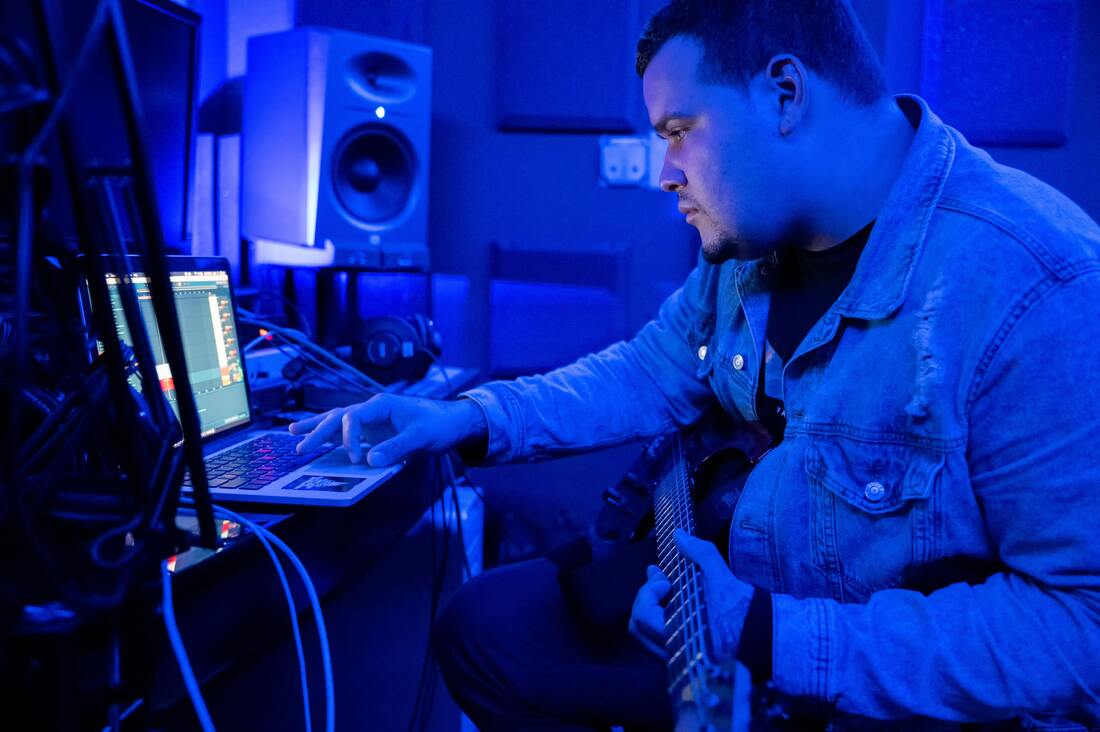 When average musicians think about music recording and production, they think of two approaches: the professional approach and the do-it-yourself (DIY) approach. The professional approach involves going into a well-equipped recording studio with an experienced, professional engineer for tracking, overdubbing, editing and mixing, then shipping off your mixes to an experienced, professional mastering studio for mastering. The DIY approach is where the artist does everything themselves using consumer-level hardware and software. The DIY approach is usually chosen to save money. The results are often - but not necessarily always - less impressive with the DIY approach. Today, I'm here to tell you that a hybrid approach is a valid third approach. It allows you to save money while not sacrificing too much quality. The key to getting the right balance of the DIY and professional approaches is to honestly evaluate what skills and resources are needed and what you have available to you, then choosing what you do yourself and what you leave to the professionals. Let's break down "music production" into a few of its phases and talk about the skills and resources needed for each phase. Tracking & Overdubbing Tracking and overdubbing are phases that require the least technical skill. And except for recording drums, they are phases that require fewer technical resources. For everything except drums, you will need the following skills and resources:
For recording drums, you will need microphones for each drum as well as overheads. Generally, you can get away with basic instrument microphones and stands/clips for each drum except the kick drum, which will require a kick drum-specific microphone. Overhead microphones are usually condenser microphones designed for that particular purpose. And, you need a room acoustically appropriate for drum recording. Some people choose to take a different approach with drums, either programming them using a software program or tracking them as MIDI. Some artists do all of their tracking and overdubbing themselves. Others do none of the tracking and overdubbing themselves. And it's not uncommon for artists to record their drums in a professional studio and do the balance of tracking and overdubbing in a DIY fashion. Editing Some aspects of editing, like making timing corrections, can be done within the bones of the DAW. Others, like vocal tuning, require third-party plug-ins. And, if you want a recording that is competitive with what comes out of pro studios - some may, some may not - you will need to do vocal tuning. So, in addition to what you needed for Tracking & Overdubbing, you will also need:
If you are taking a hybrid approach to music production, you can choose to editing yourself or send your recording to a professional for editing. I will say this...if the vocals require a little more TLC than just a nudge of a note here or there, having vocal editing done by an experienced professional will result in the vocals sounding a lot more natural. Mixing Mixing is where specialized skill and experience really separates professionalism from amateurism. Someone's first mix ever will not sound anywhere close to a mix done by an experienced professional. That's because a common misconception is that mixing is just balancing the volume of instruments and voices. It's much more than that. While mixing can be done within a DAW using built-in capabilities, here are the additional skills needed for a good mix:
If you've never mixed a recording before and want to publicly release a recording that is taken seriously yet still allows you to take advantage of the cost savings that a DIY approach offers, mixing is a smart place to start getting professionals involved. Mastering Even when a record label-caliber recording is done in a professional recording studio, it is usually sent to an independent mastering specialist for mastering services. The prevailing logic is two-fold: someone who specializes in mastering will be much better at it than someone who does recording but dabbles in mastering, and having a separate mastering specialist means that you will have two music industry professionals putting their talent to work to make your recording sound its absolute best. So, naturally, even if you've done tracking, overdubbing, editing and mixing yourself, it's to your benefit to have a professional do your mastering. In fact, I'd say that if you only have one process performed by someone else, it should be mastering. It's the last chance you have to make a sonic improvement to your music before it goes to streaming or physical product manufacturing. And, it's usually less expensive than vocal editing or mixing. You'll give yourself the opportunity to at least have one music industry professional contribute to the quality of your recording. If you want to do mastering yourself, you should know that DAW's are generally not designed to do mastering. There are some people who try to do mastering within a DAW with its built-in plug-ins. But, that's not really true mastering. Here are the additional skills and resources you need to do mastering:
Closing Thoughts Obviously, if money were no object, every musical artist would have the best producers, recording engineers, mixing engineers and mastering engineers work on their recordings. But, money is an object. So, some situations require a DIY approach to enable artists to get their music out there on a limited budget. Therefore, it's good to think through what you can accomplish yourself and, if you do have some budget available, where you might be able to afford a music industry professional to enhance your work. Before and After Music Group is a company that specializes in mastering. If you would like to have at least one outside company take your DIY project to the next level, we'd love to hear from you and discuss what we can do for your music. Contact us at beforeandaftermusicgroup@gmail.com or 412-600-8241! 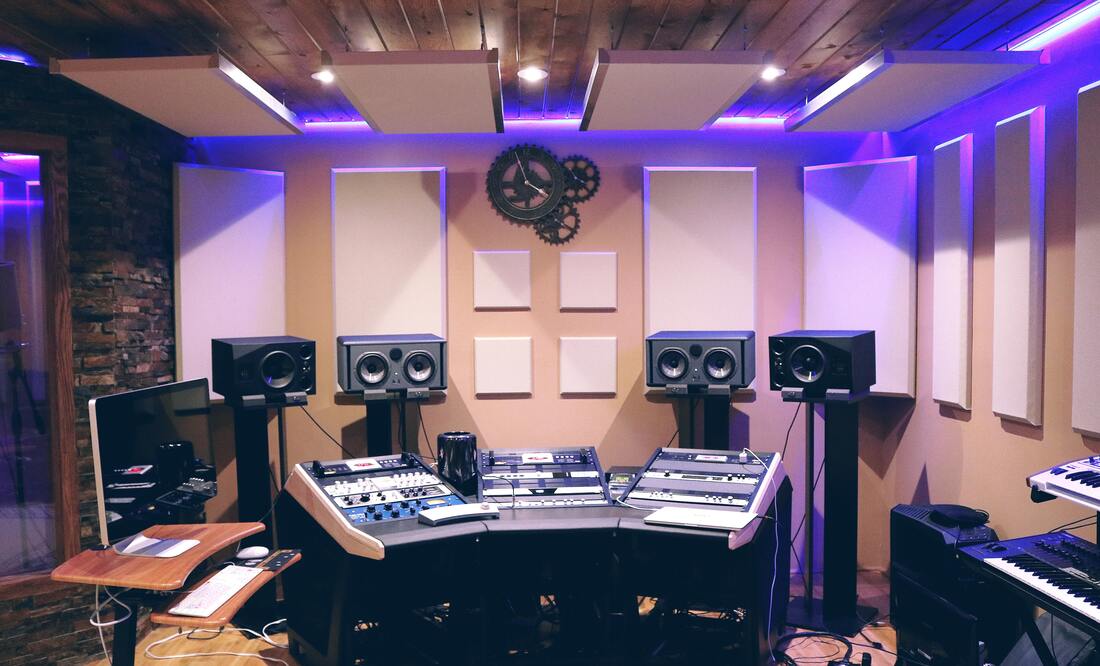 Between recording/editing your music and distributing it, there are two discrete processes that will be done to your recording: mixing and mastering. Both mixing and mastering are highly specialized processes in music production. But, they are not the same. Mixing involves (among other things):
Whereas mixing deals with working with each channel (instruments and voices), mastering deals with the overall sound, including:
As you can see, these two processes involve very different tasks. When done properly, they involve different software and tools. And - when you want high-quality, precise results - very different skills of the engineers. That's why mixing and mastering for national recordings are usually done by separate people. Mixing and mastering each have their iconic engineers who are specialists in just the mixing or mastering segment. For example, Chris Lord Alge is one of the most well-respected mixing engineers. And Ted Jensen is equally legendary as a mastering engineer. Mixing icons don't dabble in mastering. Mastering icons don't dabble in mixing. This is for two main reasons. First, mixing and mastering are different specialties. The people who are great at one really know the intricate details of performing it from doing it - and nothing but it - day after day on a very high level. Second, and perhaps most importantly, separating the two processes enables you to get the multiplied benefit of having not one - but two - music professionals contributing ideas, expertise and work to make your music sound the absolute best it can. So, in summary, mixing and mastering are different. As you make decisions on choosing mixing and mastering engineers, it's helpful to be able to hear the difference that each process makes. Whether it's your own music or the music of a friend, listen to pre-mixed and mixed recordings back to back. Listen to pre-mastered and mastered recordings back to back. Over time, you will understand the difference between the processes, the value of the processes, and which mixing engineers and mastering engineers can do the best job for you. Despite the fact that national recordings are almost always mixed and mastered by separate people, you will see people on a local level - who aren't great at either mixing or mastering - offering both services. We're not definitively saying that this can't turn out OK for you. But, by having these two services performed by a single generalist, you are forgoing an opportunity to have the benefit of having two music production professionals teaming up to give your recording the most ideas and the best treatment possible. Therefore, it's key to know what mixing and mastering processes are and how they can give your music the most enhancement for your money. Of course, because Before and After Music Group specializes in mastering, we'd welcome the opportunity to be your mastering studio of choice! Contact us at 412-600-8241 or beforeandaftermusicgroup@gmail.com to discuss your project and how we may be able to help your music sound as professional as possible. 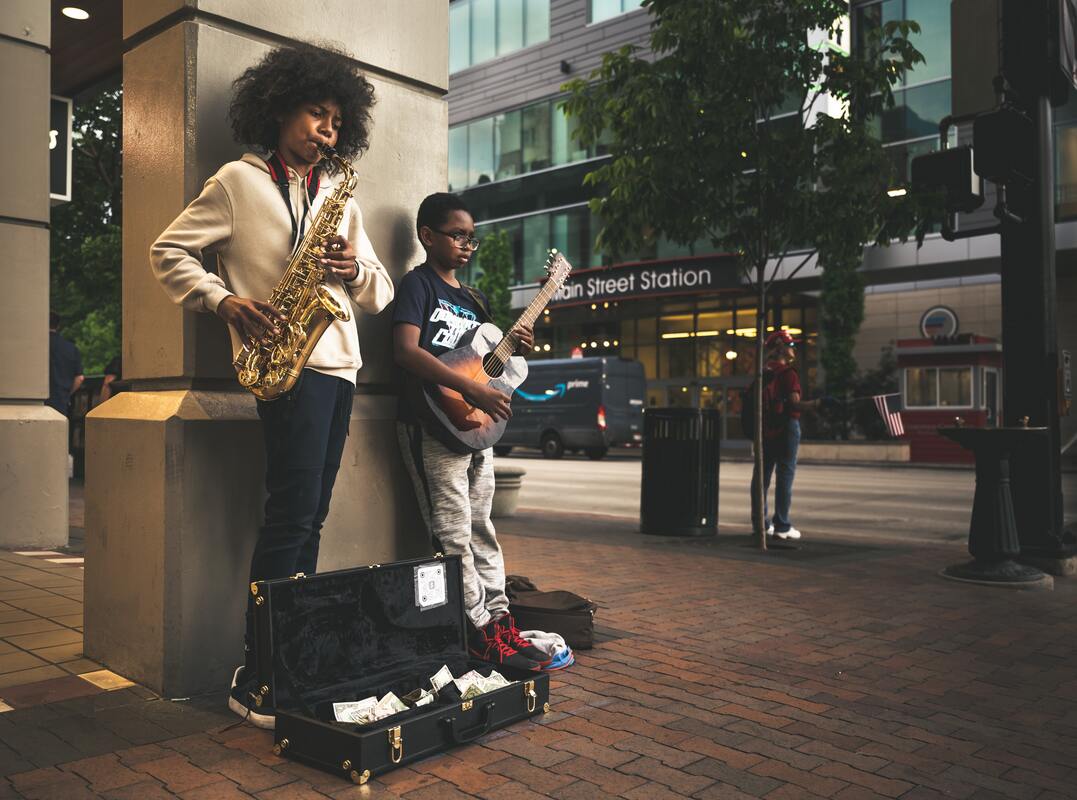 There are a lot of variables that go into the cost of professionally recording and releasing an album. Whether you self-produce or hire a professional producer, how many modern production techniques you use, and how much perfection you seek in your takes all play a role and make it difficult to give you a one-size-fits-all number. However, there are some commonalities in what I'd consider a "typical" recording process that can help you get on the dartboard, if not hit the bullseye, when estimating the cost of your next album. So, I will focus this article on a "typical" situation, giving you the caveat that mileage may vary in your particular situation. This approach assumes that you'll be recording with an engineer, but not a separate producer. A producer, in a professional sense, takes a very hands-on approach with the artist: co-writing and arranging songs, changing parts, rehearsing and coaching performances, etc. The compensation for that type of pro producer is usually quite high and, therefore, will not be a part of this calculation. First, let's talk about four variables that you need to get values for before beginning the calculation of your recording and release costs. Those are: A. Studio Hourly Rate (SHR): Most more professional studios will charge an hourly rate, many of which range between $50 and $75 per hour. If it's a studio where noteworthy national acts record, that rate can go way up. Some studios may only offer "blocks" of hours, like a half day/4 hours or full day/8 hours. In those cases, just divide the block cost by the number of hours you get to determine the hourly rate. We'll be doing a lot of multiplying by the SHR, so make sure you get actual numbers and don't assume what you'll be charged. B. Number of Songs (NS): This is simple - how many songs are you going to record? C. Number of Drum Days (NDD): In the recording of many albums, usually drums are tracked first and tracked all at once as opposed to the band laying down a whole song before starting a new song. One of the reasons for this is that drum set up takes a long time. We'll get to that in more detail in a minute. But, for now, focus on estimating the number of days you will spend recording drums. This may vary but, in my experience, five songs is kind of the maximum number of average-length songs for which you can track drums in a single day. So, even if you only are recording six songs, if you use five songs as the max per drum day, you will need two drum days. There is no fraction of a drum day...if you set the drums up, it's a full drum day. D. Number of Parts (NP): Now, you need to think of breaking down the number of parts your songs have. A drum track is one part. A bass track is one part. Each guitar track is one part. An overdubbed guitar solo is one part. A lead vocal track is one part. A backing vocal track where all members of the band sing at the same time is one part. If you have harmony vocals where three different band members will record three different parts separately, those would be three parts. Whatever instrument or voice needs to be recorded on its own track represents a discrete part for the purpose of this calculation. Now that you've determined values for these variables, you can start plugging those variables into a calculation. The calculation is a master calculation separated into sub-calculations for five of the phases of recording and releasing music: Tracking, Editing, Mixing, Mastering and Distribution. 1. The Cost of Tracking First, you need to calculate the set up time for the drums. For first time recorders, this cost can be an unpleasant surprise as it can often take around two hours just to set up the drums, get them mic'd, get them sound checked, etc. So, multiply the number of drum days by the studio hourly rate by two: NDD x SHR x 2. This is your drum set up cost. Next, understand that - in my experience - it takes around an average of a half-hour per part per song if you're reasonably prepared. If you're not, it can take much longer. So, let's count on you being reasonably prepared. So, multiply your number of songs by the number of parts by the studio hourly rate by 0.5 (i.e., a half-hour): NS x NP x SHR x 0.5 This is your parts recording cost. Add the drum set up cost to the parts recording cost to get your cost of tracking. Expressed algebraically, this would be ((NDD x SHR x 2) + (NS x NP x SHR x 0.5)) 2. The Cost of Editing Editing involves a lot of things. Taking noise out in the silence between parts, tuning vocals, quantizing drums and other things. In my experience, the average song requires about two hours of editing. (NS x SHR x 2) 3. The Cost of Mixing Mixing times can vary. I've witnessed professional mixing done in as little as three hours per song (for a full band) to as many as 10 hours per song. I will plug three hours into the formula. Ask your recording engineer for the typical amount of mixing time he/she/they spend and use that number instead. (NS x SHR x 3) 4. The Cost of Mastering Mastering costs can vary wildly. The mastering studios that major labels use can run thousands of dollars per song. The mastering studios that indie labels and independent artists use will typically run between $50 and $150 per song. Before and After Music Group's mastering services, are on the lower end of that price scale but the upper end of the quality scale. As I've written about before, there is a huge benefit to identifying your preferred mastering studio BEFORE you even begin recording. So, reach out to a mastering studio sooner rather than later and learn your price. (NS x Per Song Mastering Cost) 5. The Cost of Distribution There are several digital music distribution service providers out there who can get your music on Spotify, Apple Music, Amazon, etc. Their prices are often in the form of a per-album fee or an annual subscription. Per album fees can be lower but, if you are planning several releases in the same year, an annual subscription may make more sense. There are other differences, so I encourage you to research the many options and go with the one that fits best with your objectives. Because both per album and annual subscription rates top out at around $30 (US), just use $30 for the sake of calculating the cost of distribution. The Master Calculation You need to add the costs of Tracking, Editing, Mixing, Mastering and Distribution together to come up with an estimate of the total cost of your project (not including the manufacture of physical products like CD's or vinyl). Combined together, the calculation (in US dollars) is: ((NDD x SHR x 2) + (NS x NP x SHR x 0.5)) + (NS x SHR x 2) + (NS x SHR x 3) + (NS x Per Song Mastering Cost) + 30 Because many musicians don't release how long it takes to set up drums, or how long it takes to track a three-minute song, or how much editing is involved, this calculation may make it seem like it is more expensive than anticipated to record and release an album. But, hopefully, having this calculation - put together after lots of experience - will enable you to more accurately estimate your costs and avoid unpleasant surprises. Before and After Music Group specializes in music mastering. We'd love for you to consider us to help get your music to reach its sonic potential. Contact us!  Before you enter the recording studio, you should do a quality control check of sorts on many aspects of the songs you are recording. Today, we'll explore how to do such a QC check on your lyrics. Lyrics are often written hastily. Whatever comes to you in a stream of consciousness is what goes down on paper. Because lyrics often have the least repetition of any of the parts of the song, lyrics are often the last component to be completed. This can put pressure on the lyricist as you can't have a complete song without complete lyrics. As such, sometimes the first draft of lyrics are less than perfect. And that's OK. However, before you cast your song into proverbial stone in the recording studio, you should carefully review your lyrics and, if necessary, rewrite them to make them perfect. Here are some questions to ask yourself that can help reveal ways to improve your lyrics. 1. Does every line make perfect sense? Obviously, when we write our first draft of lyrics, they make sense...in our own heads. We know what we are thinking. We have an idea of the context. We are assuming certain things. But, without what is in our heads, a different person may not have a clear idea of the story. Look at every line. Would each line make sense to someone reading or hearing it for the first time? Are you missing details that would help you tell the story better? Does anything sound lazy, like you just picked that line because it fit and not because it is the greatest line possible for that part of the song? Asking yourself these questions - and answering them honestly - can help you infuse your song with better lyrics. Even if you only improve one line from your original version, it can make a big difference to listeners and help your song be positioned for greater success. 2. Is your listener expecting a rhyme and you disappoint them? Music styles changes throughout the years and decades. The most popular songs today sound nothing like the most popular songs from the early 1960's. However, one thing that hasn't changed is the fact that the most popular songs all have rhyming lines. It's expected. Sometimes, an amateur song will set up the listener to expect a rhyme and fail to deliver that line. Imagine something like "Roses are red/Violets are blue/I am in love/In love with her." You were expecting "In love with you," right? So, when the lyric said "her" instead of "you," you had an unmet expectation that felt upsetting. Don't give your listeners this feeling! Spend the time, find a rhyme. 3. Are your rhymes too predictable? There's something called a "perfect" rhyme, where the entire ends of two words rhyme and the only thing that's different is the beginning sound of the two rhyming words. From our last example, that would be "blue" and "you." That's a perfect rhyme. But, in modern music, over-reliance on perfect rhymes is frowned upon. It is regarded as more creative to use "imperfect" rhymes as perfect rhymes can be too predictable. This is where the two rhyming words share a vowel sound, but may have other sounds that keep them from being perfect rhymes. Examples of imperfect rhymes would be rhyming "me" with "beat," or "slay" with "tame," or "beach" with "treat." Hopefully, you get the idea. As an example, let's say that you've written the line "Twinkle, twinkle, little star/How I wonder what you are." You are using a perfect rhyme scheme and it sounds a bit predictable. You want to convey the same message, but wish you had an imperfect rhyme. You could rewrite it as "Twinkle, twinkle, little star/You have me so in the dark." Not exactly a Grammy-worthy lyric there, but it's just to illustrate how using imperfect rhymes can open creative doors and make your songs less predictable. Embracing imperfect rhymes can help you avoid being boxed in and unable to tell your story well because you feel you have to be obedient to the perfect rhyme scheme. 4. Are your rhyming rhythms too predictable? Rhyming rhythms can be predictable, too. When you have rhyming words on the same beat of their measures, your lyrics can sound dated. Modern music often has rhymes on different beats. Using the "Twinkle, Twinkle" example, here's how you can change things up a bit. If you want your second part to be longer than your first part, you can subtract syllables from your first part. Like, instead of singing "twinkle" twice, sing it once, keeping the same rhythm thus moving "star" from beat four to beat three and having a quarter rest on beat four, such as: Twinkle little star How I wonder what you are "Star" will be on beat three of its measure and "are" will be on beat four of its measure. You could also leave the first line alone and modify the second line similarly by subtracting two syllables and, thus, having "are" fall on beat three with a quarter rest to follow: Twinkle, twinkle, little star Wonder what you are Another idea is to add one syllable/one eighth note to the second line, thus placing the rhyming word on the "and" of beat four, as in: Twinkle, twinkle, little stars How I wonder what you dudes are So, there are three very quick examples of how a very small tweak can make your lyrics (as well as your melodies) sound less predictable and more modern. 5. Can you convert something simple sounding into something more creative? Plain words are fine in speech when you are trying to convey a message. But, lyrics should be more creative. They should express an idea in a way that no one has heard before. For example, you could write "You've ended relationships with a lot of people." And your audience may relate to that sentiment. But, it's kind of boring. Christina Perri's "Jar of Hearts" is a great example of how to take a boring sentiment and make it exciting, new sounding, and very visually-oriented: "Collecting your jar of hearts/And tearing love apart." Another example is "Black Vultures" by Halestorm. The song expresses the theme of "I will prove my critics wrong." But, that would be a bit pedantic if the band sung those exact words. Instead, they sang: Black vultures, circling the sky Pick at the pieces Scavengers wait for me to die But I'm not defeated Again, way more interesting and very visual. Plus, did you notice the imperfect rhyme scheme? Halestorm rhymed "pieces" with "defeated." Cool! Planning Ahead I hope that these tips helped you to discover ways to improve your lyrics and make them the best they can be by the time you put them down in the studio. As you plan your recording and release strategy, you'll eventually need mastering between the time that you finish mixing in the recording studio and the time that you submit your music for digital distribution. Before and After Music Group is a professional mastering studio that would love to help your music reach its sonic potential. It's never too early to decide who will master your recording. Whether it's just to ask questions or to take the final step in securing mastering services for yourself, we welcome you to contact us by email at beforeandaftermusicgroup@gmail.com or by phone/text at 412-600-8241. Best of luck getting your music prepared for the world! |
AuthorChip Dominick is the CEO and head mastering engineer for Before and After Music Group Archives
June 2023
Categories
All
|


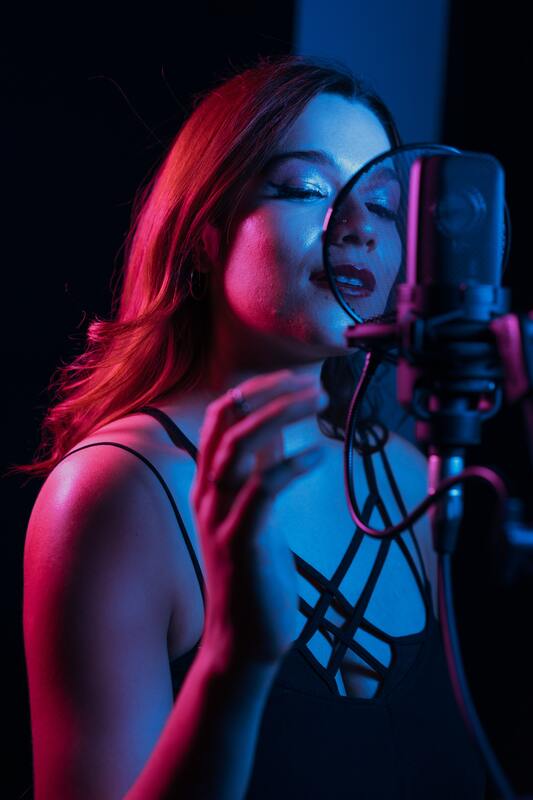
 RSS Feed
RSS Feed